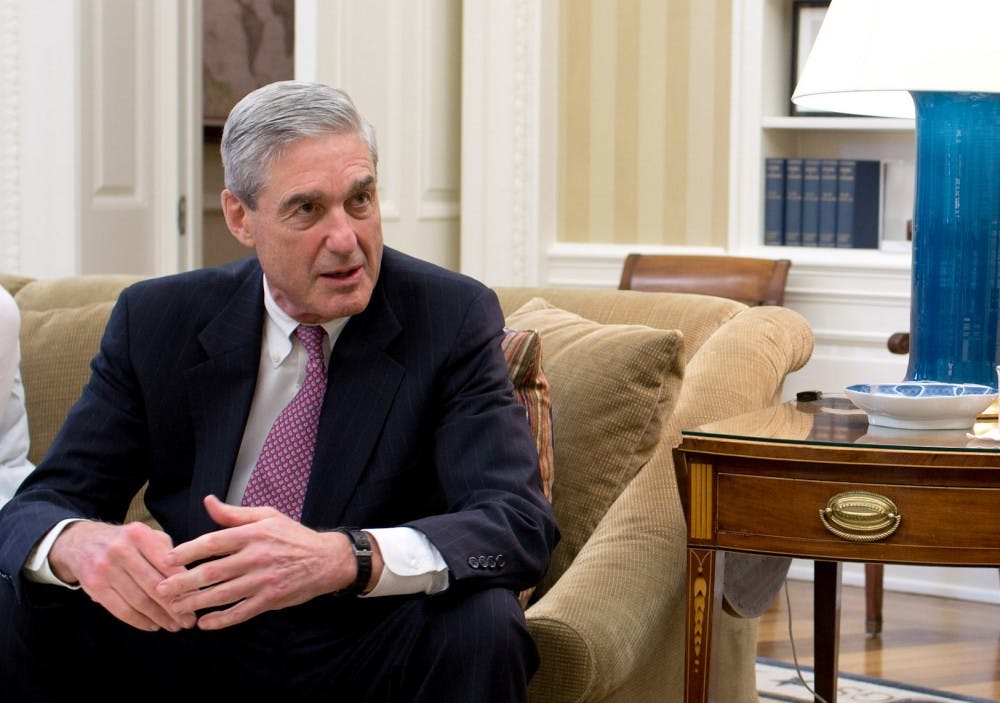Over three years of the American news cycle culminated this week in the release of the redacted Mueller Report, a 448-page summation of many incidents surrounding President Trump and his campaign’s connection with Russian interference in the 2016 election. While the Mueller Report is hugely important for its content, it is also important as an indicator both of progress in and frustrations resulting from public attempts at truth-finding.
The news cycle expects too much from even its most dedicated consumers in terms of keeping track of many moving pieces in complex stories over long periods of time. This is particularly true in the case of the Mueller investigation, but other events, such as tracking the progress of all 20 candidates currently declared for the 2020 presidential election, follow similarly daunting timelines. Trying to keep up with everything involved in such complicated events over such a long period of time is understandably difficult.
Part of the problem is the sheer amount of coverage these events naturally generate. The Republican National Committee estimated that more than 8,500 articles about the Mueller investigation have been written in the past two years by The New York Times, The Washington Post, CNN and MSNBC alone. I strongly disagree with their implication that this coverage was unnecessary, but this sheer volume does pose a problem for the conscientious follower of the news. How should they go about prioritizing their news consumption? Being informed is a critical part of everyone’s basic civic duty as a citizen, but few people have the time to read all of the coverage. It is critical that we continue to expect citizens to make efforts to stay informed so they can be thoughtful participants in our democracy, but we can’t expect everyone to read everything.
There is also some evidence to show that oversaturation of news is detrimental for many people. It is a mistake for anyone to expect their consumption of the news to be an emotionless experience. To some extent, a level of emotional commitment to the major stories of the day — especially political ones — is necessary for our society because the issues politics grapple are often highly consequential. People should be invested in promoting the course of action they believe to be best for everyone, and some degree of emotional investment is a positive sign of engagement in civic life. However, 56 percent of American adults report that following the news causes them significant stress and articles about how to detox from the news are running rampant. This phenomenon is bad both for society, because of the possibility that turning off the news might lead to decreases in other areas of civic life, such as activism and voting. It would be incredibly damaging for the stress of the news to drive people away from civic activity entirely and decrease participation in our democracy.
Because turning off the news is not an acceptable option, we must individually and collectively find solutions to engage more responsibly with the news. The Mueller Report is a good example of how Americans can collectively begin to address the huge news stories of the day in a productive manner. Its primary use is that it recounts the events of the past three-odd years in detail, to refresh us all on details that may be collectively fuzzy after so much time. It also aggregates everything into one place to be viewed as a whole picture, rather than in the piecemeal dribs and drabs of the articles that have preceded it. I am not suggesting that the reporting done over the past few years was unnecessary. However, in assessing next steps, the summative picture the Mueller Report provides is necessary.
The Mueller Report is not immune to the problems I have described, however. It is still 448 pages and reading it is a significant commitment of time. However, I hope many people who are not strictly obligated to read it choose to do so anyways. Regardless of its effects on the current administration — and despite the overwhelming nature of the coverage surrounding it — the Mueller Report represents some progress in the way we as a society attempt to describe and explain complex, far-reaching news stories. Unfortunately, I think this progress would be difficult to make reporting on other areas of public life. What independent authority should compile data aggregating the years of news stories on presidential candidates prior to presidential elections in an analogous format, for example? The Mueller Report is sadly unique in the way it enables us to pinpoint and partially solve issues of American public discourse. For that effort alone, I believe it is worth the read.
Katherine Viti is an Opinion Columnist for The Cavalier Daily. She can be reached at opinion@cavalierdaily.com.







